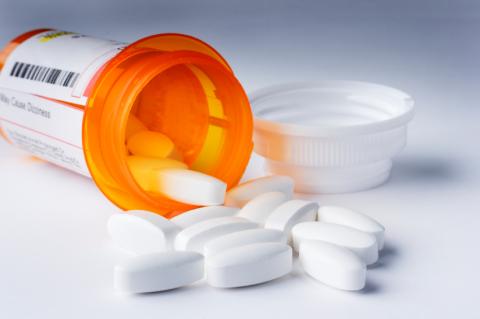Prescription charges are hazardous to health

From April, all medical-card holders (30 per cent of the population) will be charged 50c per item prescribed, with a maximum charge of €10 a month per family.
Before the budget, there was talk of the “necessity” of charging for prescription drugs because of increasing costs. Mary Harney, the health minister, justified a charge on the basis of “two things — we have to raise money and we have to discourage over-prescribing and the overuse of medication”.
Many countries have introduced “co-payments” (or patient contributions) for prescription drugs as a means of reducing costs. Co-payments have also been used to deter overuse of drugs.
There is, however, substantial international evidence that charging patients for medicine leads to poorer health outcomes and more costly healthcare in the long term.
The UK-based Cochrane Collaboration assesses the effectiveness of drugs and clinical interventions. In a review completed last year, it found that introducing prescription charges does reduce the cost of the drugs bill for the state in the short term. However, it concluded that introducing charges for people on low incomes and increasing charges for others (even those on higher incomes) leads to “reductions in drug use ... for both life-sustaining drugs, and drugs that are important in treating chronic conditions”.
Some studies in the review found an increase in admissions to accident and emergency departments, hospitals generally and nursing homes because patients had reduced their drug intake or stopped it entirely.
The Cochrane review concludes that failure to take prescribed medicine has direct adverse effects on health; this in turn results in increased use of healthcare services and higher overall health and social care expenditure in the longer term.
The review found that charges led to “large decreases in the use of drugs that are important for people’s health”. These findings were applicable to “life-sustaining” drugs and those prescribed for chronic conditions such as diabetes, asthma and acute psychiatric conditions. People with mental health conditions were particularly likely to stop taking essential medication when charges were introduced.
The review states that “increasing cost-sharing may present a financial barrier to poor households for patients with chronic conditions who need high volumes of pharmaceuticals” and that pregnant women, children and older people are particularly likely to be negatively affected. Harm is less likely if charging is only for non-essential drugs and if exemptions are built in.
In most European and OECD countries, there are some charges for prescriptions, but not for the poorest 30 per cent of the population. In Wales, there have been no charges since 2007. In England, Scotland and Northern Ireland, certain groups are exempt from charges, such as people on low incomes, people with chronic diseases, pensioners, pregnant women, children and cancer patients. In England, more than 85 per cent of the population is exempt. Northern Ireland and Scotland are phasing out drug charges for everyone this year and next year respectively.
The British Medical Association (BMA) has called on the UK government to abolish the charges. Hamish Meldrum, its chairman, says: “Abolishing prescription charges is the fairest and the simplest option ... if all patients could get the treatments they needed via free prescriptions it may reduce hospital admissions and costs for the health service in the long run.”
The BMA says scrapping charges could also benefit society by helping patients return to work quicker.
In Ireland, the amount that drug charges are expected to raise is €42m this year and €52m next year. However, there appears to have been no estimate of the longer-term health and healthcare cost of patients who do not pay for, and therefore do not take, the drugs prescribed.
Medical-card holders are generally the poorest 30 per cent of the population. For the rest, increasing prescription-drug payments from €100 to €120 a month will hit the lowest earners hardest.
The health minister says she wants to discourage over-prescribing. But patients do not prescribe drugs; doctors do. If you want to change prescribing and dispensing practices you tackle doctors and pharmacists, not patients.
